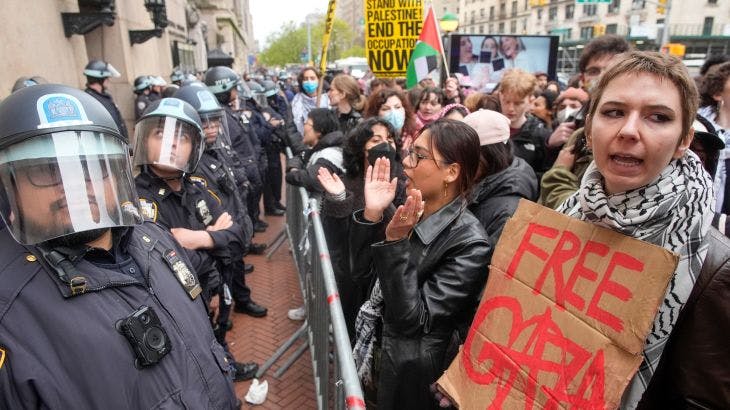
Campus Conflagrations: Columbia, NYU, and Yale at the Heart of Heated Protests Over Gaza Conflict
The ivy-draped walls of Columbia University have become the epicenter of a fiery debate that ripples through the heart of academic America, with NYU and Yale also drawn into the vortex of vehement protest. The campuses are ablaze with the fervor of pro-Palestinian demonstrations, demanding divestment from companies allegedly complicit in what they term Israeli apartheid, while pro-Israel factions counter, citing rising antisemitism. The tumult has escalated to the point where Columbia's President, Minouche Shafik, faced with an encampment on the lush greens of the university, set a stark midnight ultimatum for its removal, leading to over 100 arrests. The university's decision to shift to virtual classes amidst this turmoil reflects a deeper crisis, balancing freedom of expression with campus safety. Meanwhile, NYU and Yale grapple with their own protests, arrests, and the complex interplay of student activism and academic peace. The narrative is further complicated by external pressures, including political figures and community leaders weighing in, demanding actions that range from the resignation of university heads to immediate cessation of hostilities against protesters.
Conclusion
As the dust struggles to settle, the universities stand at a crossroads. They are not only institutions of higher learning but battlegrounds for broader societal debates. The challenge ahead is monumental: to foster an environment where difficult conversations can occur without fear of reprisal or violence, ensuring that the hallowed halls of academia remain forums for free thought and not echo chambers of conflict.